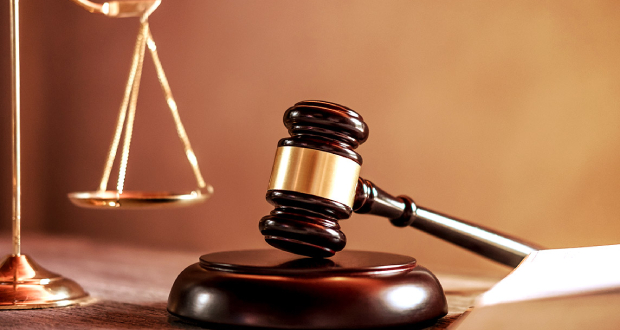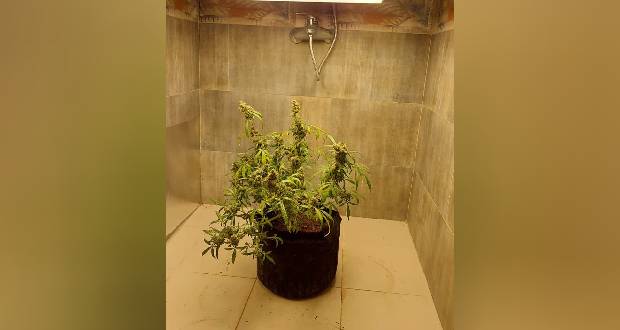Publicité
Réformes du judiciaire: l'analyse de l'ex-juge Vinod Boolell
Par
Partager cet article
Réformes du judiciaire: l'analyse de l'ex-juge Vinod Boolell

The speech of the leader of the Labour Party a few weeks back has triggered a debate in some quarters about reforms in the Judiciary. Possibly never before has such an interest been shown in what reforms should be operated in the Judiciary and when. A private radio initiated a debate with lawyers, namely Mr. Shakeel Mohamed, Mr. Adrien Duval, Mr. Reza Uteem and Mr. Hervé Duval. Members of the legal profession have also expressed their views. Members of the Judiciary have remained totally silent on this issue. One does not expect them to engage in a public debate on reforms as any decision to reform remain in the province of the political will of the government. However, it is to be hoped that many of the criticisms and suggestions made on the Judiciary have not fallen on deaf ears and that the judges and magistrates would keep the ideas formulated at the back of their mind.
The issue of reforms in the Judiciary is not new. As far back as 2002 Lord Mackay of Clashfern made a number of recommendations on reforms in the Judiciary and in the office of the attorney general. In 2006, the government took note of the recommendations that were reviewed. But there was no follow-up on the recommendations. All governments that have been in power since that date have simply ignored the recommendations and those of Justice Albie Sachs in 2002. The result of the jettisoning of these reports has resulted today in enormous problems in the Judiciary. Members of the public keep asking questions on a number of issues.
Both Lord Mackay and Justice Sachs recommended the establishment of a separate court of appeal. In this connection, Justice Sachs writes in his report that the present set up for hearing appeals is most unhealthy as there is a perception that judges would stand by each other when hearing appeals over cases of their colleagues. The separate court of appeal never saw the light of day as, apparently, when the recommendation was made, some judges then in office, expressed the view that if five most senior judges go the court of appeal, as recommended, the remaining ones would lose their allegedly acquired right to hear appeals. As if the right to hear appeals is an acquired one!
“Long delays and the different attitudes of some members of the Judiciary, which may appear to be hostile at times, towards some members of the legal profession, can ruin that perception of independence.”
When we talk of reforms, it does not suffice to establish new courts or to increase human resources and modernise logistics, though these are important. On this issue, the weekly Mauritius Times of 22 June 2001 wrote “What reforms are we talking about? To modernise, we need trained people who are efficient and who can deliver. It is not only logistics that need to be reformed. There must be a change of attitude on the part of members of the legal profession in not delaying the hearing of cases by stretching the time that it takes to hear and determine cases or by moving for regular postponements. Each time a case comes to court, all sorts of technical points are raised in order to delay the hearing and final determination”.
Lord Mackay recommended that “Judges and magistrates should be encouraged to do better case management. Directions might have to be issued….for that purpose. In particular, cases should be fixed and heard in such a manner that it should be clear that it is for counsel to make himself available for the court and not vice-versa. Cases should be fixed and heard de die in diem, i.e., on consecutive days, until disposed of”. What do we witness today? Delay appears to be endemic in our system. Cases drag on in the courts especially the Supreme Court. The worse aspect of the delay is the inordinately long time a judgment takes to be delivered after the hearing. For example, is it fair for an accused who is on remand to be acquitted 10 years after a trial? Can such outrageous injustice be tolerated and for how long more?
Bringing in all sorts of reforms is one thing. But above all, there must be a total change in the attitude of judges and magistrates in regard to the length of time it takes to hear a case and the time it takes to deliver a judgment. The more a judgment is delayed, the more suspicious people may get about the reason for this. People cannot be prevented from speculating.
“The only glitter of hope lies with the DPP and the Judiciary. The independence of these two institutions and the integrity of the judges constitutes the cornerstone of the rule of law and of our flawed democracy.”
In the 2021/2022 budget speech, it was announced that new provisions would be introduced in relation to time limits for judgements and rules on adjournments. This has remained a dead letter. Even in the absence of new provisions, the judiciary should take upon itself to prevent undue delays in the hearing of cases and the delivery of judgments. A court of law cannot be hostage to all kinds of technical objections which then prolong the hearing of cases. Further, judges and magistrates when dealing with objections should not unduly delay their rulings.
The judiciary should not only be independent but must be seen to be independent. Long delays and the different attitudes of some members of the Judiciary, which may appear to be hostile at times, towards some members of the legal profession, can ruin that perception of independence. It is one thing to have a Judiciary. It is quite another thing if it fails to fulfill its role fearlessly. Efficient functioning of the Judiciary and any other institution is what differentiates countries that achieve and those that do not. In an interview in the Mauritius Times on 12 February 2021, former President Cassam Uteem stated: “The only glitter of hope lies with the DPP and the Judiciary. The independence of these two institutions and the integrity of the judges constitutes the cornerstone of the rule of law and of our flawed democracy”.
Publicité
Les plus récents






